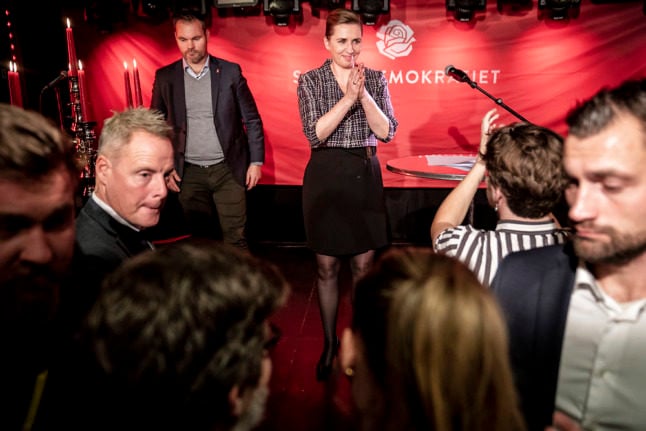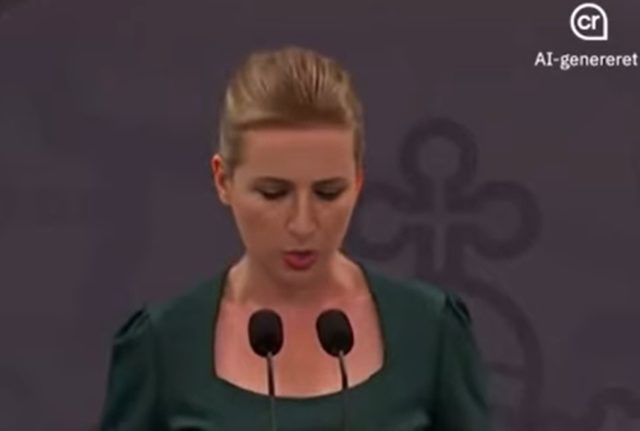Frederiksen’s party did not perform well at the polls, despite a historic triumph in Frederiksberg which heralded the end of 112 years of Conservative mayors in the Copenhagen district.
A headline defeat for the Social Democrats also came in Copenhagen. In the Copenhagen Municipality, the left wing party Red Green Alliance won the biggest vote share, humiliating the Social Democrats, who have held the mayor’s office in the city since it was created in 1938.
Despite the Red Green Alliance victory, the Social Democrats keep the mayor’s office with their candidate Sophie Hæstorp Andersen taking over the job. That is because an absolute majority of parties backed her candidacy, giving her more overall support amongst the elected representatives than Red Green Aliance rival Line Barfod.
But Barfod’s party has taken a bigger share of the seats in the city government, giving it the power to strongly influence areas like awarding contracts for city development or appointments to semi-public companies, and weakening the influence of the Social Democrats.
A 10-point loss of the vote share in Copenhagen – from 27.6 percent in the 2017 election to17.3 percent in 2021 – represents a big defeat and reflects the unpopularity in Copenhagen of the politics of the parliamentary Social Democrats, who have often directed unfavourable rhetoric at metropolitan demographics and, for example, cut university education in the capital in favour of smaller towns.
The party also moved backwards in Denmark’s other major cities, its vote share shrinking in Aarhus, Odense and Aalborg as well as in Copenhagen.
Nationally, the 28.45 percent vote share for the Social Democrats is a 4 percent loss compared to 2017. This also looks damaging for the party, and Frederiksen, more broadly.
Commenting on Tuesday’s election results, Frederiksen attempted to ward off the suggestion that her party’s poor performance in traditionally Social Democratic cities was a consequence of the government’s focus on rural areas ahead of urban Denmark.
“We have made a lot of good decisions which benefit large parts of Denmark. And if there are some people in cities who say ‘hang on, now you have to look at us. There are some decisions we want to be made on our behalf’, we’ll take a look at that,” she said according to news wire Ritzau.
“This applies not least on the housing market. Everyone must be able to afford to live in cities,” she added. The government earlier in the autumn announced a spending plan to boost affordable housing in major cities.
Frederiksen also conceded that controversy over deleted text messages related to last year’s decision to cull all of Denmark’s fur farm minks may have impacted the party’s popularity at local polls.
The PM has faced questions over a policy to automatically delete texts after 30 days, a practice not universally applied across government ministries.
READ ALSO: Why are Danish PM Frederiksen’s deleted mink texts causing controversy?
“I stated yesterday that, as we know, there has been some discussion of SMS messages (during the election campaign). Can I exclude the possibility that discussion of minks and SMS’ has rubbed off in some places? No, I can’t,” she wrote in a Facebook post on Wednesday.
A bad result in local elections could see the PM’s hitherto extremely strong support inside her party come into question for the first time since she won the general election in 2019, according to an analyst who commented on the matter prior to the elections.
“One of the reasons she has no internal opposition is that she’s so strong and she’s winning,” Jakob Nielsen, editor-in-chief of Danish political news outlet Altinget, said to media including The Local at a pre-election briefing.
“And once she stops winning, she’s not going to be above the natural laws of politics. She’s going to get people (within the Social Democrats) talking about being against her immigration policies, against her policy on climate change.. against her moving education out of the big cities,” Nielsen said.



 Please whitelist us to continue reading.
Please whitelist us to continue reading.
Member comments